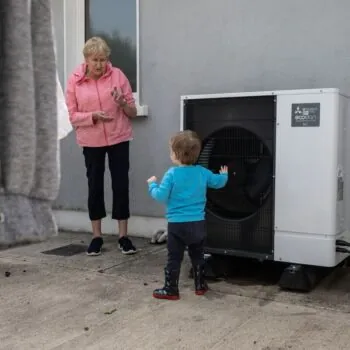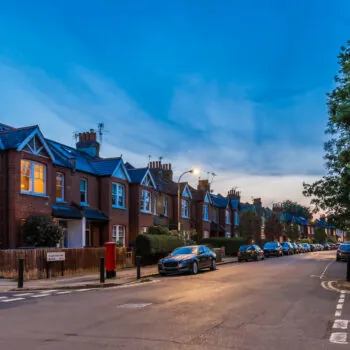Labour’s clean power mission has the potential to tackle the biggest issues facing the UK today: the climate crisis, the cost of living crisis and delivering economic growth. By accelerating the deployment of renewables, the UK can achieve its clean power mission by 2030. With the right set of policies, clean power can also bring down bills, so the benefits of renewables are felt by all households.
Achieving the UK’s clean power mission
Modelling commissioned by E3G has shown that the government can achieve the clean power mission by 2030, meeting the National Energy System Operator (NESO)’s definition.
Given the target is less than 6 years away, it can only be met by a huge build out of renewables –tripling offshore wind and more than doubling solar and on-shore wind generation. The clean power mission can be achieved with minimal amounts of gas CCS and without biomass power from Drax. This is important because gas CCS still leaks greenhouse gas emissions and there is strong scientific evidence that biomass power from Drax, despite being classified as clean, produces a high level of global heating emissions.
Reducing the risk of gas price spikes
Fossil gas, however, will still be needed as backup power in 2030. Although electricity bills would not increase if the clean power mission was met (under our report’s central gas price assumptions and existing policies), if gas prices are high then bills are likely to go up by 2030. The good news is that the impact of high gas prices diminishes the less gas you use.
During the Russian invasion of Ukraine in 2022, the average electricity bill payer saw a rise of £335 even with a price cap, and the government still had to bail out households by a colossal £44 billion – a debt we will be paying off for many years to come. Under similar circumstances this would cause a typical electricity bill to rise by only £70 in 2030 under the clean power mission – a huge saving. Clean power provides households and businesses vital protection from the damage caused by high gas prices.
The government must start planning now to get off gas for good by investing in green hydrogen as the long-term backup solution. This is likely to be more cost effective than using gas CCS and has the added benefit of breaking the link between electricity bills and volatile fossil gas prices.
The clean power mission can also go hand in hand with the faster electrification of the economy. This is because speeding up the electrification of heat, transport and industry means we will not need to pay generators to switch off when there is excess renewable power available.
Reducing energy bills for the UK
But building a clean power system doesn’t just protect us from high gas prices. We estimate that electricity bills could be cut by over £200 a year on average if a series of policy reforms were implemented. We have called this our Electricity Bills Charter.
The reforms can ensure consumers benefit from the lowest renewable power prices possible. This involves reforming how we contract renewables and reducing the costs of capital for building them. Government can also help households to reduce their demand, use electricity when it is cheapest through smart tariffs, and ensure they benefit if there is surplus renewable electricity in their local area. Regulation to stop profiteering by gas companies in electricity markets and removing the cost of historic renewable subsidies would also help lower bills.
By rapidly decarbonising the power system and reforming power policies, the UK can strengthen our energy security and bring down electricity bills. We call on the government to make our Electricity Bills Charter a core part of their mission. The 2030 target is both achievable and affordable: it is Mission Possible.


